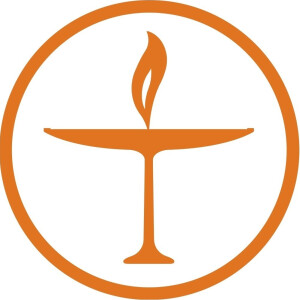
- Podcast Features
-
Monetization
-
Ads Marketplace
Join Ads Marketplace to earn through podcast sponsorships.
-
PodAds
Manage your ads with dynamic ad insertion capability.
-
Apple Podcasts Subscriptions Integration
Monetize with Apple Podcasts Subscriptions via Podbean.
-
Live Streaming
Earn rewards and recurring income from Fan Club membership.
-
Ads Marketplace
- Podbean App
-
Help and Support
-
Help Center
Get the answers and support you need.
-
Podbean Academy
Resources and guides to launch, grow, and monetize podcast.
-
Podbean Blog
Stay updated with the latest podcasting tips and trends.
-
What’s New
Check out our newest and recently released features!
-
Podcasting Smarter
Podcast interviews, best practices, and helpful tips.
-
Help Center
-
Popular Topics
-
How to Start a Podcast
The step-by-step guide to start your own podcast.
-
How to Start a Live Podcast
Create the best live podcast and engage your audience.
-
How to Monetize a Podcast
Tips on making the decision to monetize your podcast.
-
How to Promote Your Podcast
The best ways to get more eyes and ears on your podcast.
-
Podcast Advertising 101
Everything you need to know about podcast advertising.
-
Mobile Podcast Recording Guide
The ultimate guide to recording a podcast on your phone.
-
How to Use Group Recording
Steps to set up and use group recording in the Podbean app.
-
How to Start a Podcast
-
Podcasting
- Podcast Features
-
Monetization
-
Ads Marketplace
Join Ads Marketplace to earn through podcast sponsorships.
-
PodAds
Manage your ads with dynamic ad insertion capability.
-
Apple Podcasts Subscriptions Integration
Monetize with Apple Podcasts Subscriptions via Podbean.
-
Live Streaming
Earn rewards and recurring income from Fan Club membership.
-
Ads Marketplace
- Podbean App
- Advertisers
- Enterprise
- Pricing
-
Resources
-
Help and Support
-
Help Center
Get the answers and support you need.
-
Podbean Academy
Resources and guides to launch, grow, and monetize podcast.
-
Podbean Blog
Stay updated with the latest podcasting tips and trends.
-
What’s New
Check out our newest and recently released features!
-
Podcasting Smarter
Podcast interviews, best practices, and helpful tips.
-
Help Center
-
Popular Topics
-
How to Start a Podcast
The step-by-step guide to start your own podcast.
-
How to Start a Live Podcast
Create the best live podcast and engage your audience.
-
How to Monetize a Podcast
Tips on making the decision to monetize your podcast.
-
How to Promote Your Podcast
The best ways to get more eyes and ears on your podcast.
-
Podcast Advertising 101
Everything you need to know about podcast advertising.
-
Mobile Podcast Recording Guide
The ultimate guide to recording a podcast on your phone.
-
How to Use Group Recording
Steps to set up and use group recording in the Podbean app.
-
How to Start a Podcast
-
Help and Support
- Discover

Today, Kris reflects on the discovery of the Dead Sea Scrolls by a Bedouin shepherd boy searching for a lost sheep in 1947. They were found stored in sealed earthenware jars in caves near Wadi Qumran, the historic site of a strict Jewish fundamentalist community - "Men of the Light", sectarian, male-dominated. Written between 200 and 80 BCE, multiple copies of these restored scrolls of the Jewish Tanakh, allowed comparisons with the scriptures of the Old Testaments and the Tanakh, today. The corroborative relevance of these scrolls to our Judeo-Christian heritage makes them, arguably - the most significant archaeological discovery of the 20th Century. Over a third of the scrolls were not scriptural in nature. They included Essene community rules, astrological calendars, hymns, psalms, apocalyptic and apocryphal (non-canonical) biblical works, and a giant "jigsaw puzzle" of scroll fragments to be pieced together. Some scrolls were written in code. While no New Testament gospels were found in the caves, Kris points to contextual links with the New Testament such as an early "forerunner" to The Beatitudes that Richard read to us today, from the Dead Sea Scrolls. These may have influenced Jesus' Beatitudes, in the "Sermon on the Mount" (Matthew 5:3-12) or the "Sermon on the Plain" (Luke 6:20-38) - so beloved by Christians and many Unitarians today. Kris also refers to other New Testament comparisons with the Dead Sea Scrolls. One scroll - made of copper, purports to describe the location of a vast cache of buried bullion - gold and silver, as yet undiscovered! Or was it a spiritual treasure to be found by those who searched? Listen on for more of Kris's reflections on the significance and relevance of these "Dead Sea Scrolls". They have inspired more than a film of two!
More Episodes
 2023-08-14
2023-08-14
 32
32
 2023-08-07
2023-08-07
 29
29
 2023-07-23
2023-07-23
 13
13
 2023-07-16
2023-07-16
 19
19
 2023-07-09
2023-07-09
 25
25
 2023-06-25
2023-06-25
 16
16
 2023-06-11
2023-06-11
 22
22
 2023-06-05
2023-06-05
 39
39
 2023-05-28
2023-05-28
 28
28
 2023-05-21
2023-05-21
 20
20
 2023-05-14
2023-05-14
 18
18
 2023-05-09
2023-05-09
 12
12
 2023-05-05
2023-05-05
 17
17
 2023-04-24
2023-04-24
 32
32
 2023-04-16
2023-04-16
 31
31
 2023-04-09
2023-04-09
 29
29
 2023-04-07
2023-04-07
 22
22
 2023-04-03
2023-04-03
 23
23
 2023-03-26
2023-03-26
 21
21
Create your
podcast in
minutes
- Full-featured podcast site
- Unlimited storage and bandwidth
- Comprehensive podcast stats
- Distribute to Apple Podcasts, Spotify, and more
- Make money with your podcast
It is Free
- Privacy Policy
- Cookie Policy
- Terms of Use
- Consent Preferences
- Copyright © 2015-2025 Podbean.com



